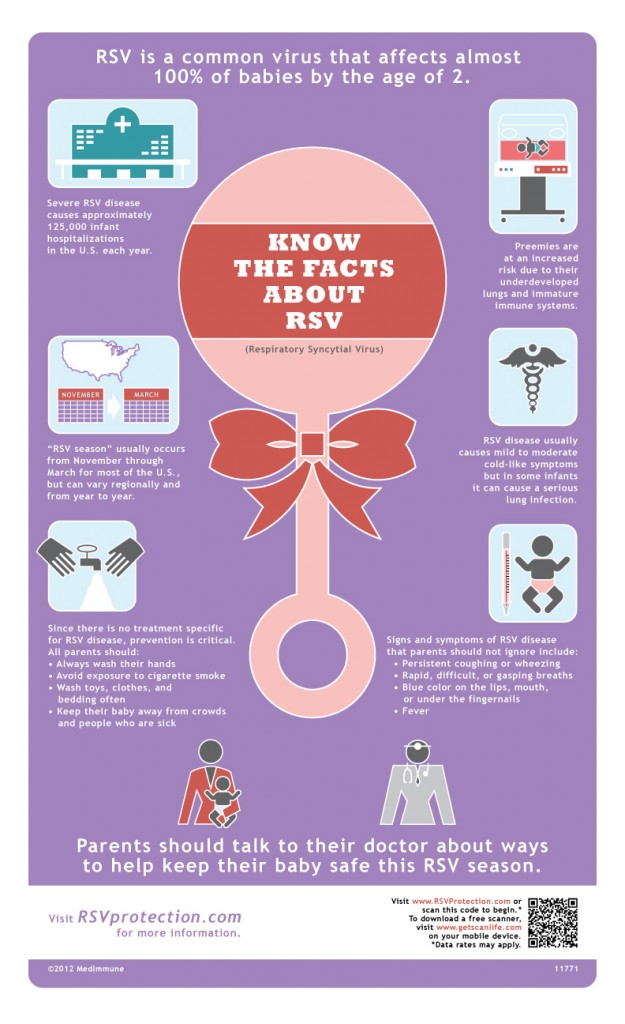Have you heard about RSV? This is my second post about RSV. I wanted to share some personal tips on how we keep our family as healthy as possible during this time of year. We have two children under the age of 6 and they have a large exposure to contagious germs and viruses.
My kids love close personal contact with others and my 5 year old washes her hands but still could use help. Those two behaviors combined with our travel lifestyle creates an environment for infection spreading. Because their immune systems are not yet fully developed, this is especially worrisome for me. So we are careful. Here are some things we do:
- wash hands
- use hand sanitizer
- don’t share our drinks and food with others
- keep hands to self
- clean toys, blankets, books, and games regularly
- if sick the kids stay in
- limit sugar and unhealthy foods
- eat and drink plenty of foods that are immune boosting
RSV Protection
Premature infants are very susceptible to infection in the early weeks of their lives, so contracting something as small as the common cold can present danger. Respiratory syncytial virus, or RSV, is:
- a common seasonal virus that affects two-thirds of all infants by age one and almost 100% of babies by age two
- highly contagious
- RSV can live on surfaces (doorknobs, countertops, toys, bedding) for several hours
- often spread through touching, hugging and kissing
- Daycare increases the risk of RSV
- RSV typically causes mild to moderate cold-like symptoms
- in some babies it results in a serious respiratory infection
Those most at risk for severe RSV include premature infants, as their lungs aren’t fully developed and they have fewer infection-fighting antibodies than full-term babies. The RSV season typically runs from November through March, so during the winter months parents should be especially careful to watch for signs of RSV.
Symptoms of severe RSV infection that require immediate medical care:
- Coughing or wheezing that does not stop
- Fast or troubled breathing
- Spread-out nostrils and/or a caved-in chest when trying to breathe
- Bluish color around the mouth or fingernails
- Fever (especially if it is over 100.4°F in infants under 3 months of age)
Once contracted, there is no treatment for RSV, so working together in RSV Protection is critical. All parents should take steps to prevent the spread of the virus. This post is her e to inform parents, especially parents of preemies, of the risks.
Visit www.RSVProtection.com and follow #RSVProtection on Twitter for more information.
Disclosure: I wrote this review while participating in a campaign for Mom Central Consulting on behalf of MedImmune and I received a promotional item to thank me for my participation.



This is great information. Thank you for sharing.
Thanks for sharing! Very good information for moms with young children!
Thank you for sharing, my sister used to be a respiratory therapist and I have heard of the stories from the er visits with parents panicked. I could not imagine having this happen and not having any idea what is wrong.